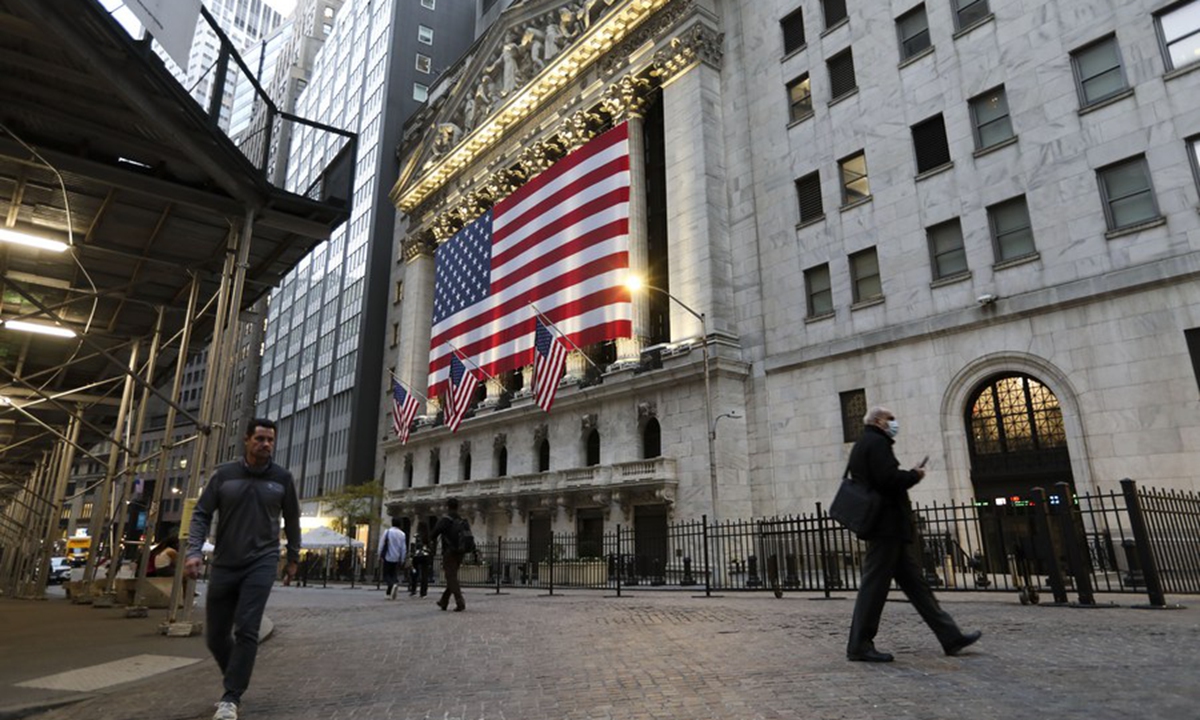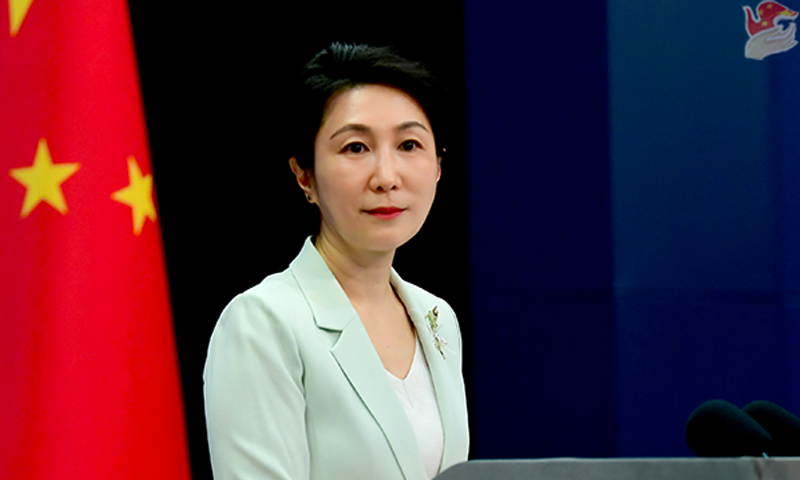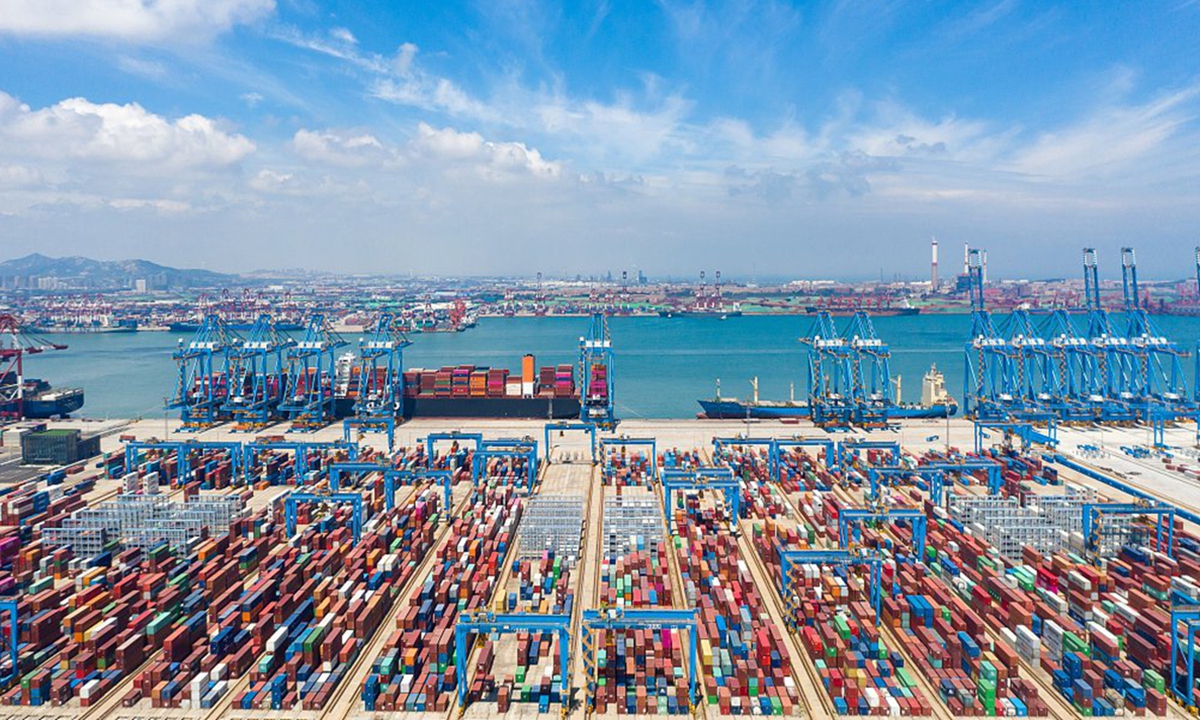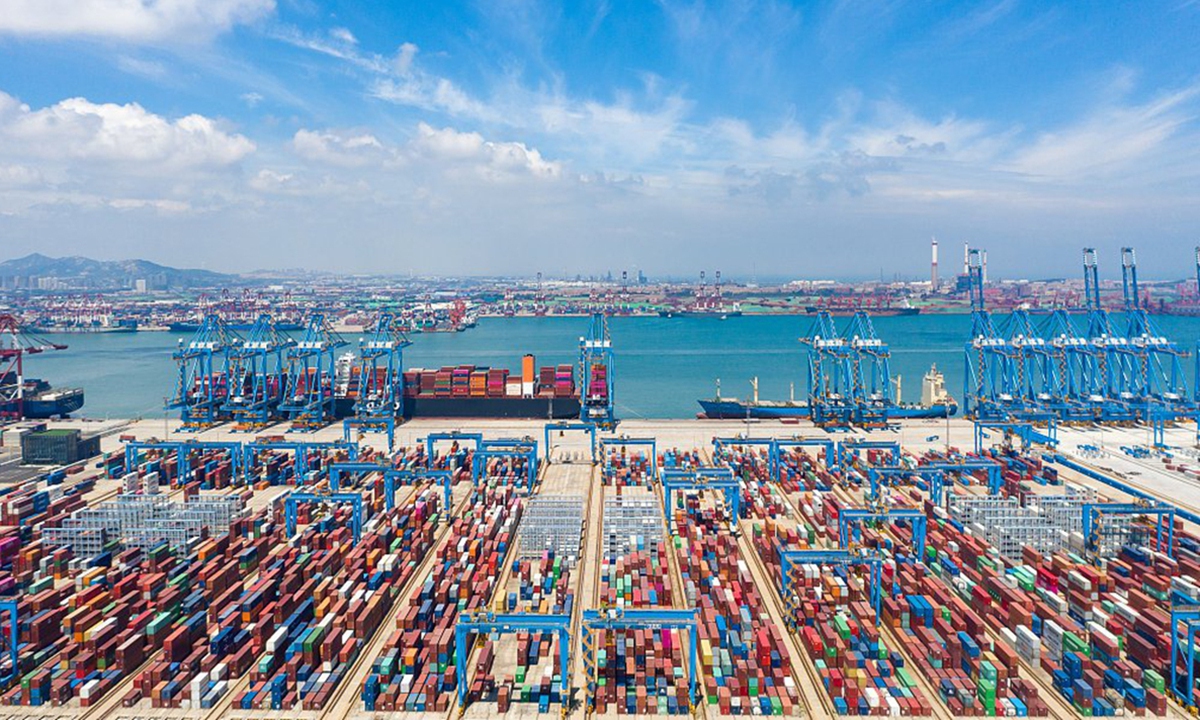
Pedestrians walk past the New York Stock Exchange in New York, the United States. File photo: Xinhua
The ominous clouds looming over the US economy are growing darker, resulting in a significant drop in the stock market on Friday. Is there a storm on the horizon?
US hiring slowed to 114,000 jobs in July, the US government said on Friday, missing expectations. The unemployment rate rose to 4.3 percent - its highest level in nearly three years, when the economy was still clawing its way back from the COVID-19 pandemic, The Wall Street Journal reported on Friday.
During a critical period when the US economy requires urgent intervention, the US Federal Reserve (Fed) faces a challenging task in determining the appropriate course of action.
US stocks, US Treasury yields and the US dollar all tumbled sharply after a far weaker-than-expected employment report for July stirred up investors' renewed fears about an economic slowdown on Friday.
The Dow Jones Industrial Average slid more than 600 points or 1.51 percent, while the tech-heavy Nasdaq Composite dropped more than 400 points or 2.43 percent on Friday. The CBOE Volatility Index, Wall Street's "fear gauge," closed at its highest level of the year, according to the report.
The US Dollar Index was last down 1.1 percent at 103.21 and got as low as 103.12, the lowest since March 14. It is the largest one-day percentage drop since November, according to Reuters.
US Treasury yields also tumbled, with interest rate sensitive two-year yields dropping as low as 3.845 percent, their lowest level since May 2023, and benchmark 10-year yields reaching a low of 3.79 percent for the first time since December 27, Reuters reported.
The Fed's ongoing high interest rate policy has had a significant impact on the economy. High interest rates increase the borrowing costs for businesses and consumers, which in turn suppresses investment and consumer spending. Although the Fed may start cutting interest rates later this year, the current high interest rate environment has already put pressure on the economy, and it will take time to digest this pressure.
Wage growth has slowed down, and inflation remains a problem. In December 2020, the average price of a McDonald's Big Mac in the US rose to $4.89. The latest Big Mac index in January this year shows that the average price of a Big Mac is $5.69.
High prices have weakened consumers' purchasing power, affecting consumer spending. The reduction in consumption behaviors such as dining out reflects consumers' cautious attitude in a high-price environment. The consumption stimulating effect by the large subsidies during the COVID-19 pandemic is disappearing.
The US is one of the largest consumer markets in the world, and an American economic downturn will directly affect global trade. Once the storm forms, exports of major trading partners such as China and the European Union will be impacted, causing disruption to global supply chains.
Especially for export-dependent economies, a decrease in demand from the US will have a significant negative impact, especially on social stability. This includes countries that have recently undertaken on factories moving from China, such as Mexico, Vietnam, India, and others. The internal social and political situations of some countries may become more unstable as a result, increasing the risk of regional conflicts.
Changes in US economic data and policies will affect the stability of global financial markets. High interest rates have already led to a continuous outflow of capital from emerging markets, but a reversal has not yet shown.
The slowdown of the US economy will drag down global economic growth. As the world's largest economy, if the US economy continues to decline, global economic growth expectations will also be revised downward, affecting the economic policies and market expectations of various countries.
The US is one of China's largest trading partners, and a decline in the US economy will continue to affect China's exports to the US. In the short term, the US is unlikely to change its trade war with China.
The decrease in orders from the US will increase competition in China's domestic market, affecting companies' profits and employment. For small and medium-sized enterprises that have long been exporting to the US, finding new export markets will also become more difficult.
Due to an increase in tariffs and supply chain adjustments, the cost of Chinese export goods is rising, which may be transferred to the domestic market, leading to an increase in import-driven inflationary pressure. The rise in production costs will also further affect business profits and economic growth.
Due to the slowdown of the US economy and the ongoing trade war, many American companies may continue to adjust their supply chains and reduce their reliance on China. Such adjustments will continue to shift toward countries like Mexico, Vietnam, and India, disrupting global supply chains and industrial chains for a long time.
Although the decline of the US economy will have a negative impact on the Chinese economy, there are also some favorable factors. Chinese companies will inevitably continue to strive to strengthen economic and trade cooperation with other countries, restructure industrial chains and supply chains to reduce dependence on the US market, but this process will be challenging.
The US will find its market and industrial power weakened, lessening its comprehensive containment of China. The "industrial alliance" that Washington is trying to build to exclude China from the high-end technology industry chain will increasingly expose cracks and will be difficult to gain full support from relevant countries due to conflicting interests.
In addition, the slowdown of the US economy may lead to a rate cut by the Fed, which will alleviate pressure on global financial markets and may have a positive impact on China's capital flows and monetary policy.
What we need to pay more attention to is the slowdown of the US economy, which will have a significant impact on the rapidly changing global geopolitics.
On one hand, this will somewhat impact the hegemony of the US. However, at present, it primarily diminishes its ability to enforce that hegemony. If the new US president implements a policy of contraction, it could potentially hinder the US' ability to intervene in and maintain security control over key regional issues.
On the other hand, the US may take more protectionist measures to protect its economy and employment, which could lead to increased global trade frictions and affect the stability of the international trade system.
The decline of the US economy will have a significant impact on the global economy and the Chinese economy, mainly reflected in trade, financial markets, and economic growth.
The author is a senior editor with People's Daily, and currently a senior fellow with the Chongyang Institute for Financial Studies at Renmin University of China. dinggang@globaltimes.com.cn. Follow him on Twitter @dinggangchina




